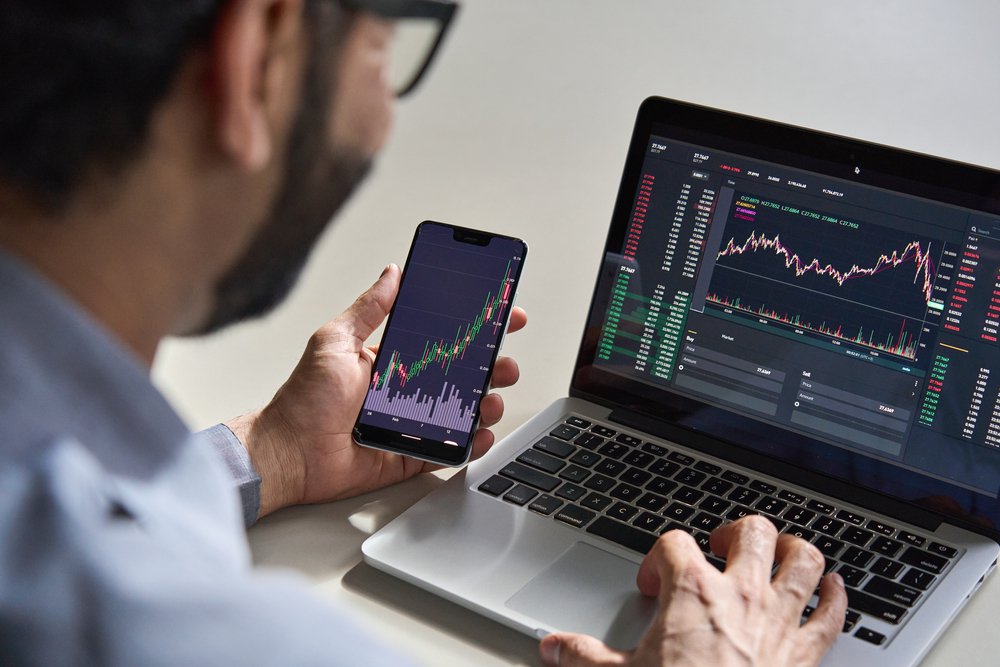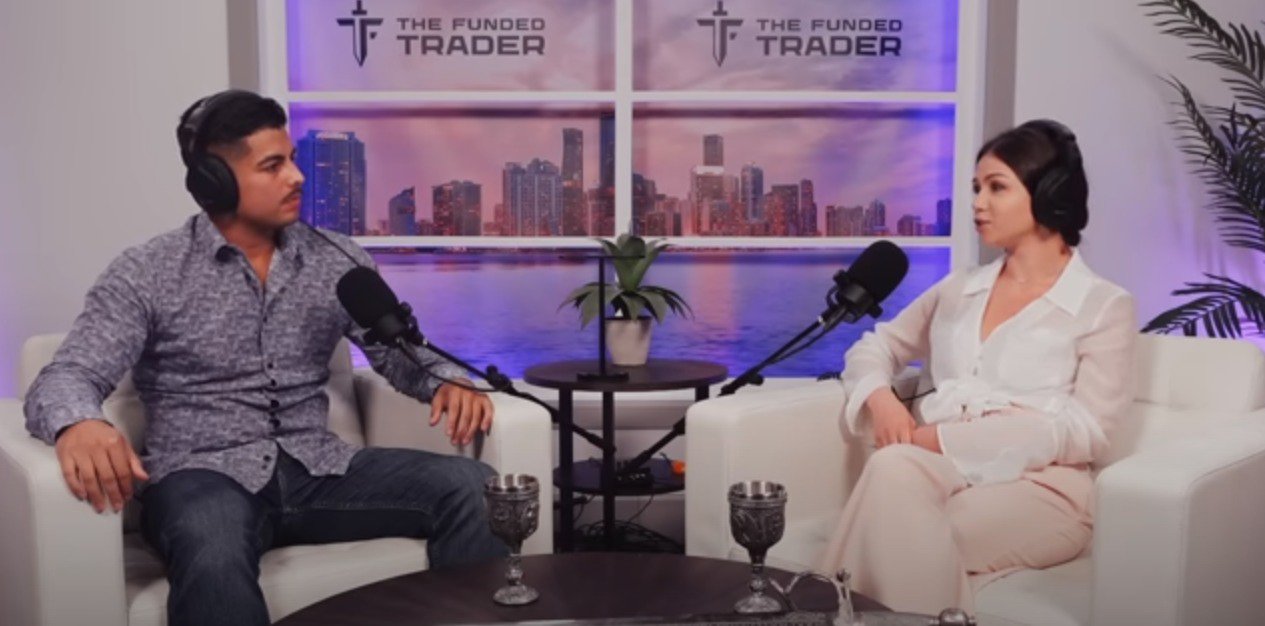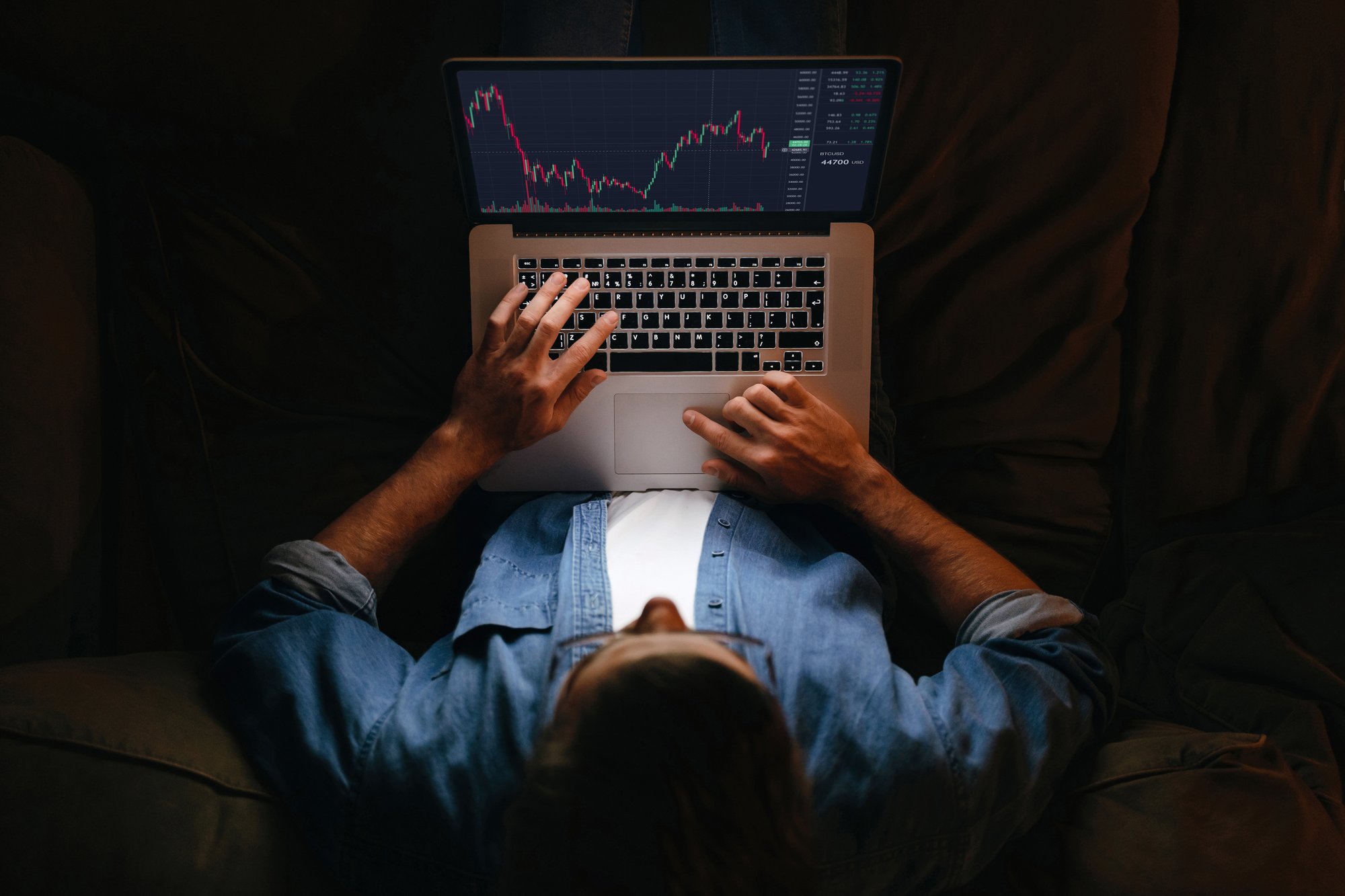Forex simulated trading is not a purely formulaic practice; when you look at a range of traders, you’ll start to notice that their success (or lack of success) usually goes hand-in-hand with their habits. The most successful traders have behaviors that match—your simulated trading psychology can dictate your success rate.
Along the same lines, you’ll notice unsuccessful traders’ practices are often built on bad patterns. They follow the charts around the clock on the hunt for profitable setups, copy other people’s trades, and don’t invest time in learning and polishing their strategies. Meanwhile, successful traders patiently wait for the right time to enter the market—and take small, calculated risks when they do.
The good news is that these are all learnable skills. Let’s dive deeper into the simulated trading psychology of an adaptable trader, breaking down negative habits to avoid and positive patterns to embrace on the digital simulated trading floor.

The Importance of Good Habits to Your simulated Trading Psychology
It goes without saying that we are a product of our habits. What we do informs what we think, how we feel, and who we are—our entire lives, really. As such, habits affect our mental and emotional states and have a direct impact on our outcomes.
So, it’s no surprise that your habits play an integral role in your simulated trading win rate. The Forex market is volatile and its price movements can be sudden. This means traders often have to think on their feet and make quick decisions. This is where two detrimental negative emotions come into play—fear and greed. Both can quickly derail your mindset and push you toward impulsive decisions that leave you in the red.
Successful traders know that the trade battle lies within their minds, not the market! So how do you keep fear and greed out of the way when trading? To accomplish this, you need to do a self-evaluation and see which negative habits are creating a cycle of fear and greed and holding you back.
Follow these tips on how to cultivate good simulated trading habits and avoid negative ones:

Good simulated Trading Habits For Your simulated Trading Psychology Health
The market rewards those who take the initiative to develop a winning mindset. To develop a winning simulated trading psychology, cultivate these five positive habits:
#1 Learn, Unlearn, and Relearn
A good Forex trader never stops learning. The market is constantly evolving, and it's important to stay informed and educated. For beginners, a demo or a paper account is a great place to start learning. It helps build a solid foundation; you’ll learn the basics of new strategies, trends, and technical terms. However, as you get ready to transition to real-world training, you may notice that a strategy that works in a demo account may not work under live-trading conditions. This is because a live market doesn’t have fixed parameters like a demo account. So you should be ready to unlearn concepts as you go and constantly test the waters to fine-tune your strategy.
Also, as you progress, you should set aside time to read and keep yourself up-to-date on market trends. Take Meeran, for example, one of our most successful and senior Funded Traders. Even after decades of simulated trading experience, he is still buying courses! Take it from a big winner that learning is a lifelong process that starts with today’s habits.
#2 Test (and Test Some More)
Do not blindly follow someone else’s strategy hoping for the same results. You need to make your own plan. Tailor your strategy to your goal and risk tolerance. A good simulated trading psychology is knowing that a sound strategy is built with hard work. Keep on testing and improving until you are confident about it.
Once you decide on your course, stay committed to it. Believe in your strategy. This will help you stay disciplined and avoid impulsive trades.
#3 Scan Daily, But Don’t Trade Daily
If you are trying to develop the psychology of a trader, then you should develop daily habits. Start your day by scanning the market and reading charts for half an hour. All successful traders begin their day by analyzing their chosen currency pair’s movement.
However, this doesn’t mean that you have to trade every day. This is especially true for beginners. Instead, you should wait like a sniper to strike at the right time. If the market does not align with your strategy, then don’t take a trade. Some traders choose to wait a few days when they know a price action setup is approaching in the charts. This will increase your win rate.
#4 Manage Emotions
Emotions and simulated trading don’t mix. Allowing them to is a perfect recipe for a bad trade. Emotions like anxiety, greed, or euphoria cloud your judgment and will ultimately cost you. For example, losing a big trade can prompt ‘revenge trading’—where you lose sight of your strategy and risk management principles to feed your ego or alleviate your panic. This is never a good idea. If data can make you rich, feelings can make you broke.
So, how do you keep these emotions at bay? You can do so by practicing mindfulness. Trade only the amount that you are comfortable losing and learn to accept that losses are a part of trading. Beginners should start by investing only a small amount. It is better to take small wins and losses and build wealth over time than risk losing your entire investment with one bad trade.
#5 Learn Risk Management
Risk management is an integral part of Forex trading. You should never risk more than you can afford to lose. Good traders don’t risk more than 1–2% of their simulated trading account balance. A lot of prop firms offer high leverage than can amplify your potential gains. However, it can also amplify your losses so use leverage wisely. Also, make sure to use stop-loss orders to protect your capital.
Journal your trades to identify any mistakes that you may be making with your risk management. This will help you improve your win rate over time.
Interesting in learning more about the psychology of a trader? Follow these positive simulated trading habits of this Wall Street trader, who received a record payout of $203,061 from The Funded Trader.
Bad simulated Trading Habits To Avoid
It’s tough to hear, but the truth is that sometimes we’re our own biggest hurdle and we don’t even realize it. Avoid these five bad simulated trading habits to set yourself up for simulated trading success:
#1 Impatience
Some traders approach simulated trading with a ‘get rich quick’ mindset. If you are expecting 100x returns, then you are setting yourself up for disappointment. In reality, good simulated trading habits are ‘boring’. Following a discipline, and reading the charts every day will give you valuable insights and experience. This can help build a small but steady source of income from trading.
Solution: Be patient with your strategy and focus on constantly testing and improving it. This will reduce emotional simulated trading as well as the risk of errors. If your trades are making you anxious or impatient, work to practice mindfulness.
#2 Getting Influenced by Social Media
It’s easy to experience FOMO in trading. You may see someone flaunting their wealth on social media and start questioning your strategy. You may even pick up bad trades on the recommendation of influencers and simulated trading groups.
Solution: To develop the right simulated trading psychology, you should learn how to avoid external influences on your simulated trading plan. You can do this by understanding that everyone’s journey is unique and that what works for someone else, may not work for you. Stay true to your strategy and have belief in your system. Avoid social media just before taking a trade. This way, you can avoid emotions such as FOMO and anxiety.
#3 Not Making Specific Plans
Discipline is a core habit of successful traders. However, promising yourself to be more disciplined is not enough.
Solution: Set concrete, achievable goals to form better simulated trading habits. This could be anything from waking up at 5:00 am to taking virtual profits at 2-3% gains, instead of letting greed take over. Make rules for your entry and exit points, and how much you are willing to risk.
#4 Not “Switching Off”
New traders often fall into the euphoria and revenge trap and let greed, anxiety take over. When this happens, you will find yourself looking at the charts all day, and making multiple trades in a day, hoping some of them will win.
Solution: Any good trader will tell you not to look at the charts too often. Instead, study the charts first thing in the morning. Note the price movements and plan your entry point. Then step away and come back to check the chart after some time. Take the trade only if your desired setup is present. Don’t take more than one trade a day and remember that the only pressure to trade is the pressure you’re putting on yourself. Again, mindfulness makes masters in more ways than one. Breathe.
#5 Jumping on Trends
Hopping on the simulated trading bandwagon by entering/leaving the market as soon as positive or negative news comes doesn’t exactly scream the psychology of a good trader. That’s when all sellers try to liquidate and prices are most volatile, after all. In the heat of the moment, you may place a quick order only to realize the market reversed direction in a few minutes.
Solution: Wait a bit for the price direction to stabilize. Adopt long simulated trading time frames and use hourly or daily charts. It will give you time to plan your next trade.
Supercharge your simulated Trading Journey with The Funded Trader
Trading is like a game of cards—you can’t control what you’re dealt but you sure can decide how you play it. Your simulated trading outcomes are directly dependent on how you react to the market. If you let negative habits take over, you may very well wipe out your account.
On the other hand, good habits like discipline and patience give you the best shot at consistent, long-term results. Granted, forming good simulated trading habits by yourself can be hard. It takes a lot of discipline, guidance, and support. That’s why you should consider joining a prop firm like The Funded Trader to leverage the support of the Forex simulated trading community!
Don’t take our word for it, though—we’re a leading platform for Forex and cryptocurrency simulated trading trusted by thousands of both beginner and professional traders. We’ll provide you with a structured learning approach that breaks down complex topics and helps you refine your strategy. Jump-start your simulated trading career with us today!


























